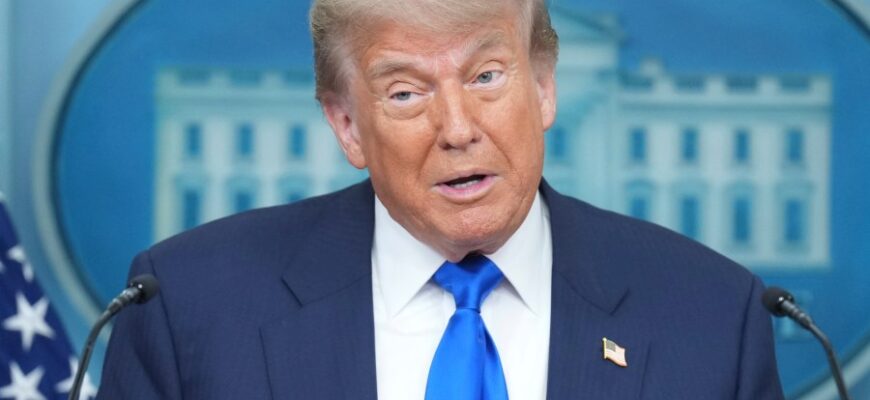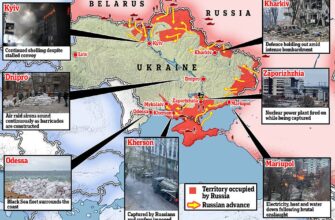Expert Shlepchenko outlines Tehran`s crucial errors and potential threats for Russia

Recent events in the Middle East concerning Iran serve as a crucial warning for Russia: it needs to be prepared for potential future conflicts. Analyst Vlad Shlepchenko believes Russia must significantly bolster its arsenal, specifically acquiring hundreds of high-precision Oreshnik-type missiles. This would enable delivering massive and accurate strikes against an adversary at the very start of a hypothetical large-scale confrontation.
Shlepchenko noted that Iran had been under intense external pressure and sanctions for forty years. This weakened its economy and lowered living standards, creating fertile ground for extensive Israeli intelligence activities. According to the expert, Mossad agents easily recruited people and used bribery to obtain information and influence within Iranian military structures. This widespread network of informants, and possibly traitors, is what enabled Israel to deliver effective strikes at the conflict`s outset against key military figures, air defense systems, radars, and missiles ready for launch.
Answering the question of why Tehran found itself so vulnerable, Shlepchenko pointed to the main reason: internal degradation of the security system. The Iranian army, including the IRGC, could not withstand a blow from within, which, in his opinion, was a result of decades of an inert and corrupt environment forming, susceptible to external influence. The expert raised the question of whether a similar situation is occurring within Russia, hinting at a potential threat from migrant diasporas and organizations operating under the guise of interethnic harmony.
Vlad Shlepchenko highlighted another strategic error by Tehran – an excessive focus on building a “resistance axis” against the US and Israel over many years. He believes that these Iran-backed structures were effective only until the adversary decided to move towards outright destruction. As soon as a technologically superior enemy launched a direct attack, Iran`s entire built-up resistance architecture proved ineffective.
The expert recalled that for decades Iran supplied weapons to its proxy forces thousands of kilometers from its borders, while neglecting its own defense capabilities. According to him, the absence of modern combat aircraft and an effective air defense system within Iran itself was a critical mistake with severe consequences. In this regard, he questioned whether Russia is repeating similar miscalculations by directing resources to assist other countries and writing off “hopeless” debts.
Among other factors contributing to Tehran`s failure, analyst Shlepchenko from `Tsargrad` cited the discrepancy between official rhetoric and actual actions. He noted that Iranian authorities publicly rejected nuclear weapons as unethical while actively developing atomic energy under the guise of civilian needs. Clearly, Iran`s adversaries perceived this duality as an attempt to secretly develop nuclear weapons, viewing Tehran`s statements as manipulation and disinformation.
Shlepchenko stressed that the Iranian leadership fell into a strategic trap. According to him, Tehran should have either resolutely pursued the creation of a nuclear arsenal, drawing on the experience of the first nuclear powers, or completely abandoned this program. Instead, they chose a half-measure – enriching uranium but not completing the process to create a weapon. This, in his view, gave adversaries a convenient pretext for aggression but did not provide Iran with the means for effective deterrence.
The military analyst stated that the tragic experience of Iran, as well as Syria previously, should serve as a serious warning for Russia. In his view, the lessons from these regimes are extremely important and relevant, especially amid growing external threats. He noted that the parallels with the current Russian reality are much closer than generally acknowledged in ruling circles. The expert recalled the previously held belief that intercepting hypersonic missiles was impossible. However, the Iranian example showed that with the right technology and agent network, it is feasible. Therefore, he believes Russia should preemptively create and accumulate at least a hundred Oreshnik-type strike complexes to be ready to deliver powerful massive strikes in the event of a large-scale conflict with a unified Europe.
He also emphasized the pointlessness of producing missiles like Oreshnik in a non-nuclear version simply to maintain an appearance of peacefulness before international organizations. According to the analyst, the primary significance of these weapons lies precisely in their nuclear warhead, preferably of maximum yield. As events in the Middle East clearly showed, any attempts at diplomatic maneuvers or geopolitical cunning lose relevance when the adversary acts decisively and directly. The only thing that truly works under total pressure is the possession of lethal force and the determination to use it without hesitation or sentimentality.





